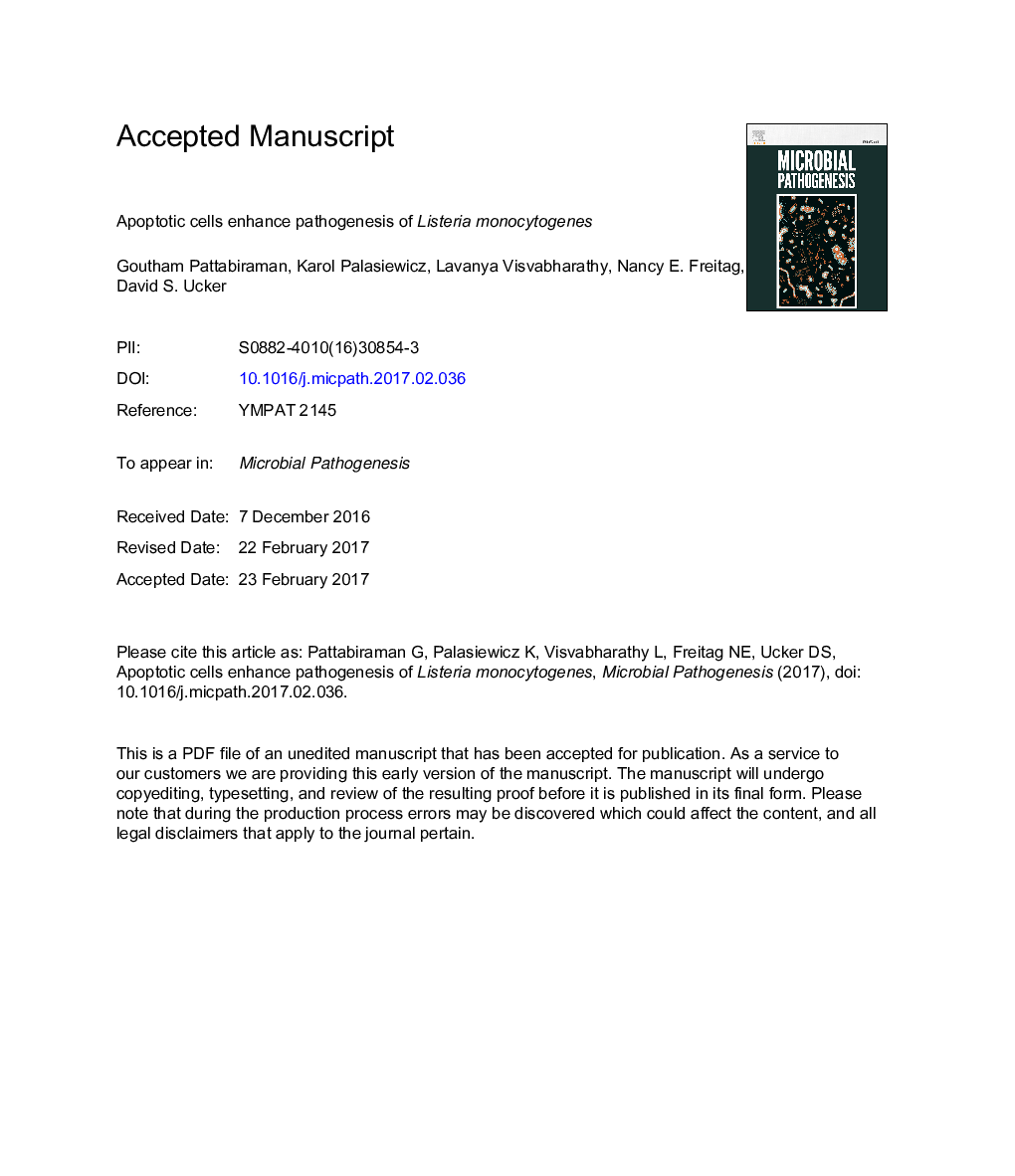| Article ID | Journal | Published Year | Pages | File Type |
|---|---|---|---|---|
| 5673827 | Microbial Pathogenesis | 2017 | 25 Pages |
Abstract
Apoptotic lymphocytes, generated in a pathogen-dependent manner contingent upon Listeriolysin O (LLO), trigger innate apoptotic immune (IAI) responses, which enhance L. monocytogenes pathogenesis. The effect of IAI is particularly apparent in an inflammatory context. Macrophages (and other cell types), in the presence of L. monocytogenes, are stimulated (via [Toll-like and other] innate immune receptors) to release pro-inflammatory cytokines and chemokines, which enhance anti-pathogen responses by altering vascular permeability and expanding, recruiting, and activating immune effector cells. (This is the case for uninfected as well as infected macrophages.) In the presence of apoptotic cells, however, pro-inflammatory cytokine expression is repressed and anti-inflammatory cytokine expression is induced. Our experiments demonstrate that apoptotic lymphocytes, generated independently of the pathogen, enhance pathogenesis as well. In lymphocyte-deficient animals, the infusion of exogenous apoptotic cells reconstitutes this process of enhanced pathogenesis.225
Related Topics
Life Sciences
Immunology and Microbiology
Microbiology
Authors
Goutham Pattabiraman, Karol Palasiewicz, Lavanya Visvabharathy, Nancy E. Freitag, David S. Ucker,
